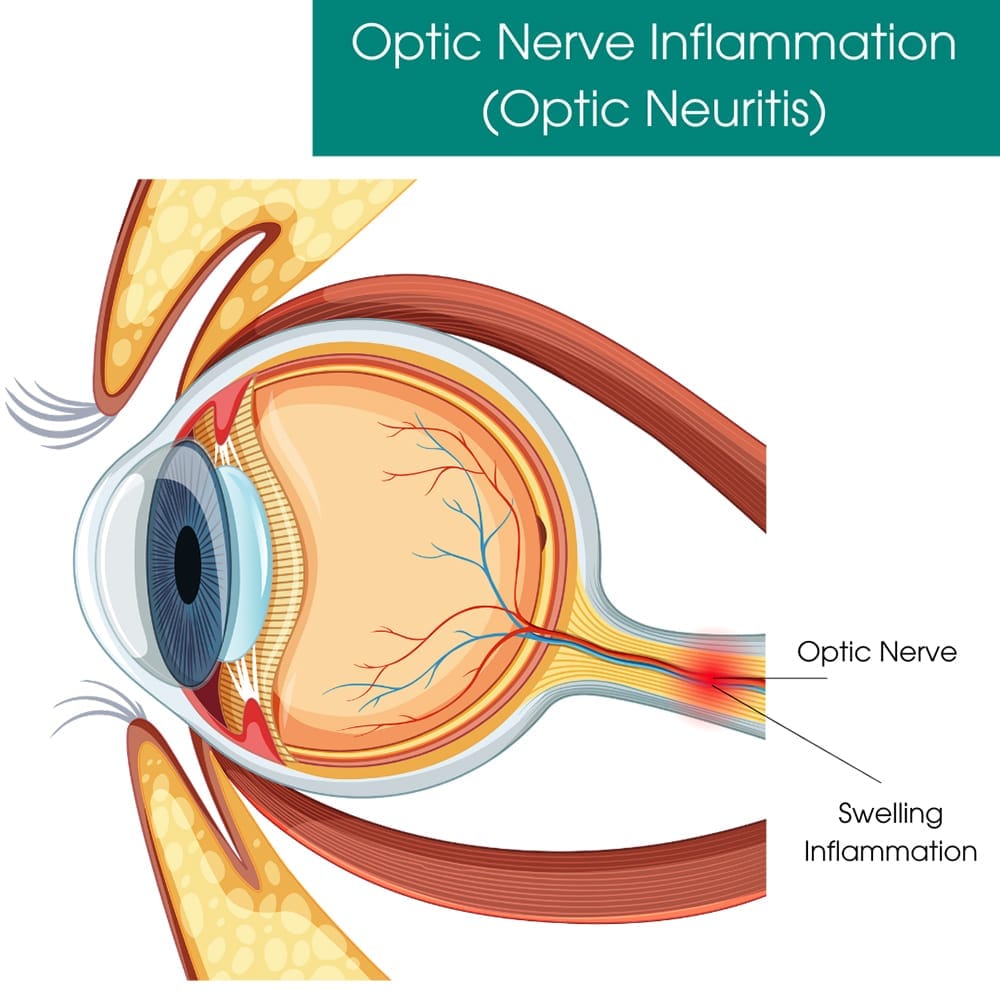 Optic neuritis, commonly referred to as optic nerve inflammation, is a condition that occurs when the nerve that connects your eye to your brain becomes swollen or damaged. This can affect your vision in various ways, such as causing blurred vision, loss of color vision, pain, or even blindness in severe cases. Optic nerve inflammation can be caused by infections, autoimmune diseases or other factors.
Optic neuritis, commonly referred to as optic nerve inflammation, is a condition that occurs when the nerve that connects your eye to your brain becomes swollen or damaged. This can affect your vision in various ways, such as causing blurred vision, loss of color vision, pain, or even blindness in severe cases. Optic nerve inflammation can be caused by infections, autoimmune diseases or other factors.
At Eye Physicians in New York, expert optometrists and eye doctors accurately diagnosis and provide treatment for optic nerve damage using the latest technology and methods. They offer a range of treatments for vision problems, such as optic nerve damage treatment and have optic nerve hypoplasia specialists who can help you with this rare condition.
The specific cause of optic neuritis is not always known. It’s currently believed that it develops when the immune system attacks the myelin, which is the protective coating that covers the optic nerve, resulting in inflammation and damage to the nerve fibers.
When optic neuritis occurs without any apparent cause, it’s called idiopathic optic neuritis. This type of optic neuritis usually has a better prognosis and a lower risk of recurrence.
Some of the other possible factors that may trigger or worsen optic neuritis include:
Optic neuritis can affect anyone, but it’s more common in certain groups of people. Optic neuritis usually occurs in young adults, between the ages of 20 and 40, and is more prevalent in women than in men.
The symptoms of optic neuritis vary and can last for days or weeks. Symptoms may improve over time with or without treatment. Some people, however, may have permanent vision loss or changes without proper optic nerve swelling treatment, which is why you should contact your NYC eye doctor at the first sign of symptoms of optic neuritis.
The most obvious symptom is eye pain that often gets worse when you move your eyes. The pain can be mild or severe, and it can affect one or both eyes.
Other symptoms include:
Without optic nerve damage treatment, you can undergo serious consequences affecting your vision and your overall health in the long term. These complications can have a significant impact on your quality of life and your ability to function.
Therefore, it’s important to seek prompt medical attention for optic neuritis, and to follow up with your doctor regularly to monitor your condition and receive appropriate optic nerve inflammation treatment.
Avoid possible complications that could include:
At Eye Physicians, you can access a range of treatments for optic nerve damage. The most common treatment for optic nerve damage is corticosteroids, which are medications that reduce inflammation and speed up the recovery of the optic nerve.
Corticosteroids can be given by mouth, by injection or by infusion into a vein.
Other optic nerve swelling treatments include:
Eye Physicians in New York have all the resources and optic nerve hypoplasia specialists needed to provide you and your children with the most effective treatment for optic nerve swelling. Contact Eye Physicians today to book an appointment with an ophthalmologist and take a step to restore pain-free vision. They pride themselves on getting you in and out of the office in under an hour.
Eye Physicians
110 Lafayette St, Suite 503
New York, NY 10013
(212) 292-4814
Entrust the care of your precious eyesight to highly skilled and experienced eye care professionals. For top-notch ophthalmologists and optometrists in Downtown Manhattan, choose Eye Physicians. Eye Physicians ensures prompt care, precise diagnosis, and personalized treatment plans.
Schedule an Appointment